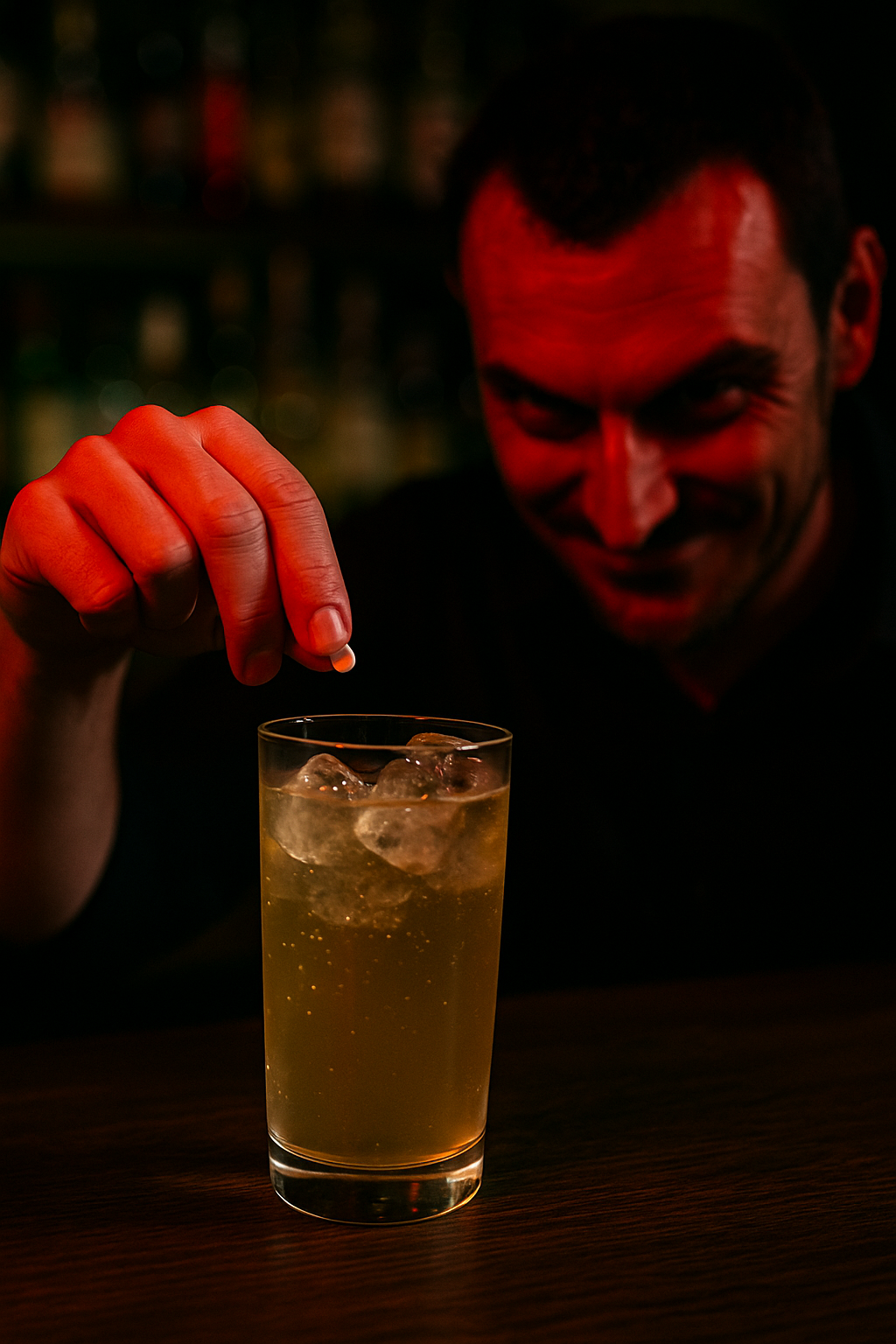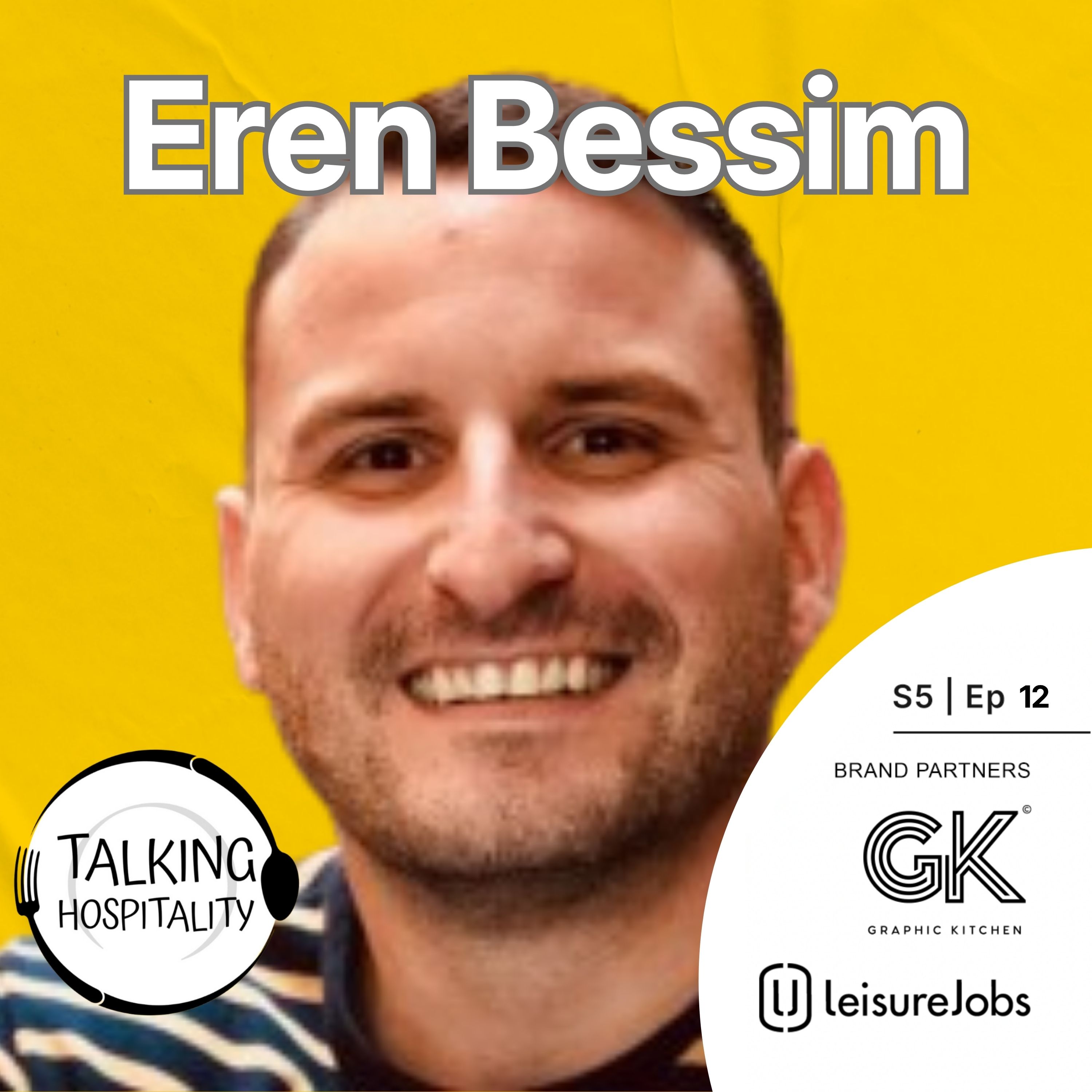What Safeguarding Really Looks Like in Hospitality – and Why It Matters Now More Than Ever

Summary:
Safeguarding in hospitality isn’t just about ticking boxes or hanging a poster in the bar. It’s about creating safer spaces – for guests and for your team. In this episode, we sat down with Eren Bessim from Safer Business Network to talk about proactive training, Ask for Angela, Martyn’s Law, and why upskilling your people might just be the best retention strategy you haven’t thought of yet.
You can’t talk about the future of hospitality without talking about safety. Not just fire exits and CCTV – but real safeguarding: how we keep our venues safe, welcoming, and inclusive for everyone who walks through the door.
That’s where people like Eren Bessim come in. A former police officer turned national trainer, Eren now heads up training at Safer Business Network, working with hotels, bars, football clubs and even the NHS to improve welfare and vulnerability engagement across the board.
We caught up with him on Talking Hospitality to dig into what safeguarding actually means for our industry – and why it’s not just the right thing to do, it’s smart business too.
Let’s start with what safeguarding actually is
“Safeguarding isn’t just one thing,” Eren explains. “It’s making sure your guests are protected and that you’ve got the right policies in place. But just as importantly – it’s about making sure your team feels safe too.”
With legal changes like Martyn’s Law (born out of the Manchester Arena bombings) and new legislation around sexual harassment in the workplace, venues are under increasing pressure to get serious about welfare. But it’s not about scaremongering – it’s about being ready, being aware, and building a culture that supports your people.
It’s about prevention, not reaction
Hospitality has always been a high-contact industry – long hours, high pressure, and a diverse workforce. That’s why, as Eren puts it, “the first people you upskill should be your team.”
And this isn’t just compliance – it’s culture.
Prevention starts with simple things: teaching your team to notice when someone’s behaving oddly, or when something “doesn’t feel right.” It’s about that old-school approach to customer service – the power of a genuine “hello” and a bit of human connection.
“Communication creates community,” Eren says. “And that’s what makes people feel safe.”
You’ve probably seen “Ask for Angela” – here’s the real story behind it
Most of us have seen the posters: “Ask for Angela if you’re in trouble.” But what many don’t know is that Angela was a real person – a victim of domestic abuse whose murder led to the creation of the scheme by Inspector Hayley Crawford in Lincolnshire.
It’s now a nationwide safety initiative that allows guests to discreetly ask for help if they feel unsafe. And it’s working – not just because it supports those in need, but because it changes behaviour.
“Even on TikTok,” Eren points out, “you’ll see guys saying ‘don’t get Angela’d’. It means people are thinking about their behaviour. That’s a win.”
And it's not just bars anymore – Ask for Angela has found its way into gyms, festivals, football grounds and beyond.
From “Ask for Angela” to WAVE: How to go further
Where Angela is reactive, WAVE training is proactive. WAVE stands for Welfare and Vulnerability Engagement, and it’s about recognising the source of risk – not just dealing with the fallout.
That could be:
-
Intoxication (alcohol or drugs)
-
Disability (visible or hidden)
-
Age, race, gender or sexuality-based vulnerability
-
Situational factors like being followed, harassed, or isolated
Wave training gives your team the tools to spot these risks early, intervene appropriately, and – crucially – feel confident doing it.
And it’s not just good for the guests. As Tim pointed out in the episode, “This training doesn’t just protect customers. It protects our team. It gives them confidence and helps them feel safer too.”
Want a safer workplace? Start from day one.
Both Eren and Joe were clear on this: safeguarding can’t be a one-off PowerPoint on day 74 of someone’s probation.
“If someone joins your business,” Eren says, “bring this into their induction. Then refresh it every few months, talk about it in briefings, and build it into your culture.”
Here’s how:
-
Make safeguarding part of the onboarding journey
-
Run regular refresher sessions and scenario-based learning
-
Tie it into wider training: mental health first aid, first responder, EDI
-
Don’t let it gather dust – talk about it, daily
This isn’t just about compliance. It’s about being a place where people want to work – and stay.
Real stories, real impact
This stuff saves lives. Literally.
Eren shared a powerful story from a security guard in a shopping centre. After attending Wave training, he noticed a man behaving erratically. He followed his instincts, engaged with the man, and was able to prevent a suicide attempt.
Another venue used their training to support two women who believed they’d been spiked. Staff detained the suspect, preserved evidence, and protected the victims – all thanks to the confidence built through safeguarding training.
Safeguarding isn’t the fun police – it’s the reason people can have fun
As Joe put it: “These initiatives don’t kill the vibe – they protect it.”
No one wants to go to a venue where they feel unsafe. But everyone wants to go somewhere that feels welcoming, well-run, and human. It’s not about fear – it’s about freedom.
And guests notice.
“Freshers,” Eren says, “have told us they’d rather go to places that are trained in safeguarding. It’s good for reputation, loyalty – and repeat business.”
Where to start
If you’re not sure where to begin, you’re not alone. But doing something is better than doing nothing.
Start with:
-
Ask for Angela – make sure your team knows the protocol
-
Book WAVE training through Safer Business Network
-
Review your induction and refresher processes
-
Think long-term – this isn’t a one-off. It’s a culture shift.
And if you're ready to embed this into a broader strategy? That’s where partnerships with organisations like Kelly’s Cause (who offer mental health first aid and support for hospitality) come into play.
Final Thought
We’re in a people-first business. But how can we look after our guests if we’re not looking after our team?
Safeguarding isn’t red tape. It’s respect. It’s trust. It’s what turns a venue into a safe, inclusive, and vibrant space – for everyone.
And the bonus? It might just be the thing that helps your team stay longer, feel stronger, and thrive.
Find out more:
🔗 www.saferbusinesstraining.org.uk
📧 training@saferbusiness.org.uk
🔍 LinkedIn: Eren Bessim




